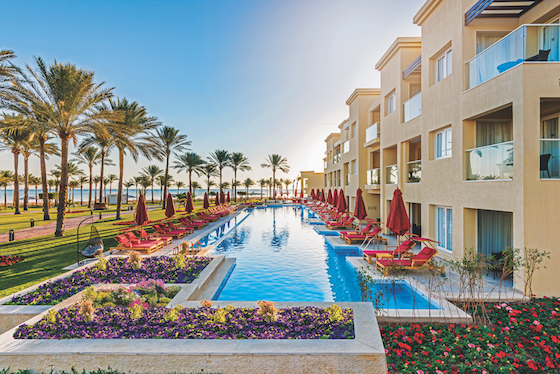The idea of traveling to Egypt has long thrown up images of beach resorts or 5-star hotels near the pyramids. But development is following the country’s tourism sector. Euromonitor International reported inbound and domestic tourists to Egypt at 22.1 million in 2018, and forecasts that to reach 27.3 million by 2022.
“We are starting to see some developers and investors considering the 3- and 4-star hotel market space in city locations,” says Ahmad Yousry, manager, hospitality at Colliers International Egypt. “In the 5-star market, more consideration is being given to more boutique-style offerings.”

Contributed by Devina Divecha
One reason is the capital expenditure cost for luxury hotels, which tends to be high. Developers are considering mid-market and upscale products or smaller, 5-star boutique hotels. Financing and cost of borrowing is another reason behind the change.
“Financing can be an issue with high interest rates, and permits are sometimes difficult to obtain,” says Accor’s development chief in the Middle East, Jean-Baptiste Recher. “However, that is outweighed by the commitment of the government to invest in the country through infrastructure projects.”
IHG’s vice president of operations for MENA, Bastien Blanc, agrees, adding, “The government initiatives to develop new cities such as New Alamein is definitely good for hotel development. We believe the current growth momentum is the result of continuous efforts being made to improve safety and security in response to the demands of international travel partners, as well as the government’s commitment to the tourism sector.”
Ramsay Rankoussi, Radisson Hotel Group’s vice president, development, Middle East, North Africa and Turkey, says some owners are prioritizing renovations instead, and the public sector needs to provide new incentives to re-launch hospitality investments while providing better access to financing.
“The cost of borrowing in Egypt is extremely high, sometimes in excess of 20%, which makes any investment not viable. Also the interest on deposits provide better returns than hotels, so investors have shown reluctance in investing in new hotels,” he says.
Egypt’s hotel sector stands out from the rest of the African continent, Leisure Property Services’ David Harper says, in developing “experience” hotels. “This is definitely an area where demand worldwide has increased and Egypt has been one of the first African countries to see developments targeting this segment directly,” Harper says.
Another gap now being looked at is serviced apartments and branded residences. Kerten Hospitality’s Marloes Knippenberg says there is growing demand for upscale hotels and mid-market residences for long-term and short-term rentals.
Accor’s Recher residences and extended-stay are trends taking hold. He further says the all-inclusive resort segment is showing promise, especially in the Red Sea area, which the company is capitalizing on through its partnership with Rixos. Accor operates three Rixos hotels in Egypt, including two in Sharm El Sheikh, and it just signed the Rixos Makadi Basy in Hurghada, with 1,636 rooms.
